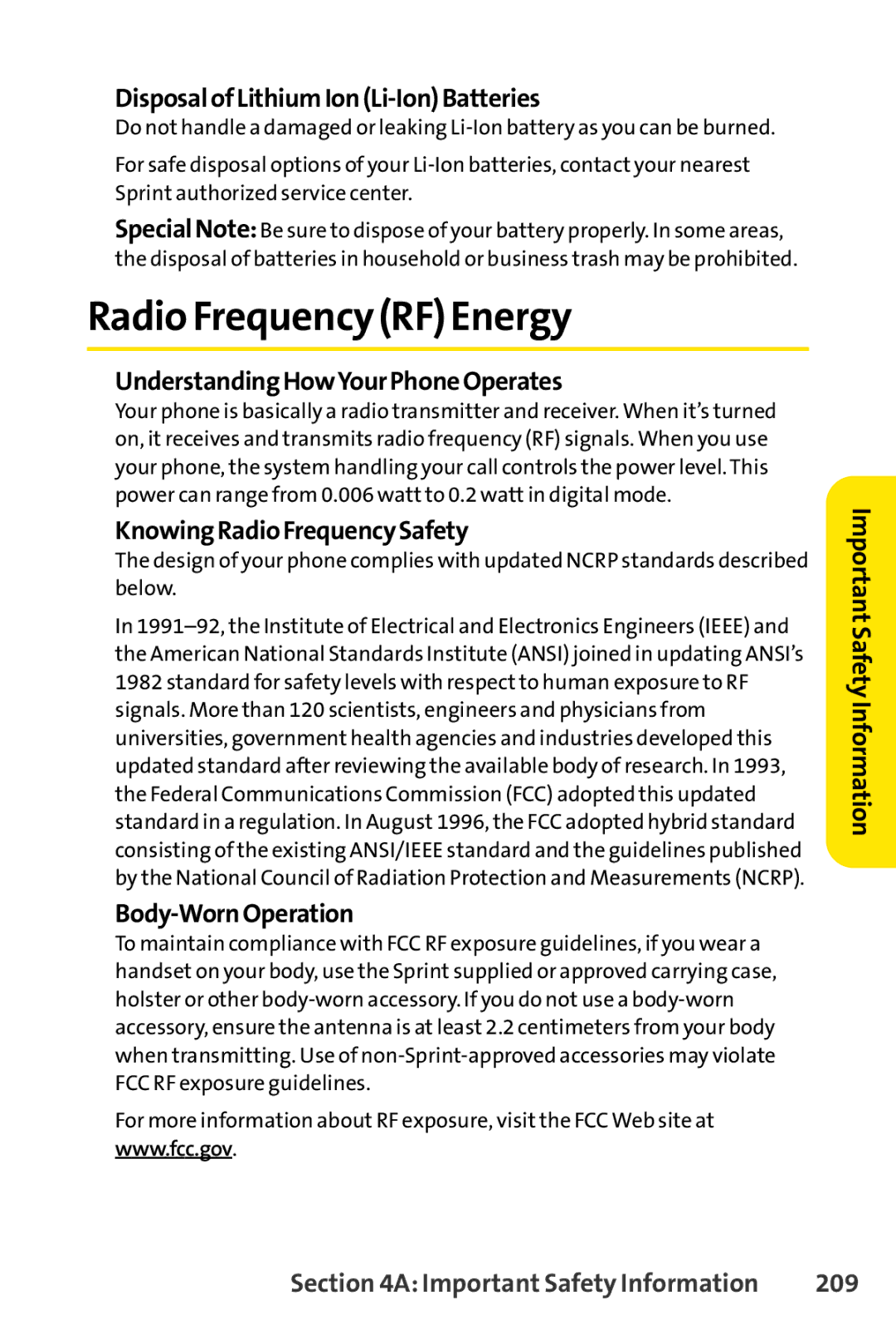
DisposalofLithiumIon(Li-Ion)Batteries
Do not handle a damaged or leaking
For safe disposal options of your
SpecialNote:Be sure to dispose of your battery properly. In some areas, the disposal of batteries in household or business trash may be prohibited.
Radio Frequency (RF) Energy
UnderstandingHowYourPhoneOperates
Your phone is basically a radio transmitter and receiver. When it’s turned on, it receives and transmits radio frequency (RF) signals. When you use your phone, the system handling your call controls the power level. This power can range from 0.006 watt to 0.2 watt in digital mode.
KnowingRadioFrequencySafety
The design of your phone complies with updated NCRP standards described below.
In
Body-WornOperation
To maintain compliance with FCC RF exposure guidelines, if you wear a handset on your body, use the Sprint supplied or approved carrying case, holster or other
For more information about RF exposure, visit the FCC Web site at www.fcc.gov.
Important Safety Information
Section 4A: Important Safety Information | 209 |
